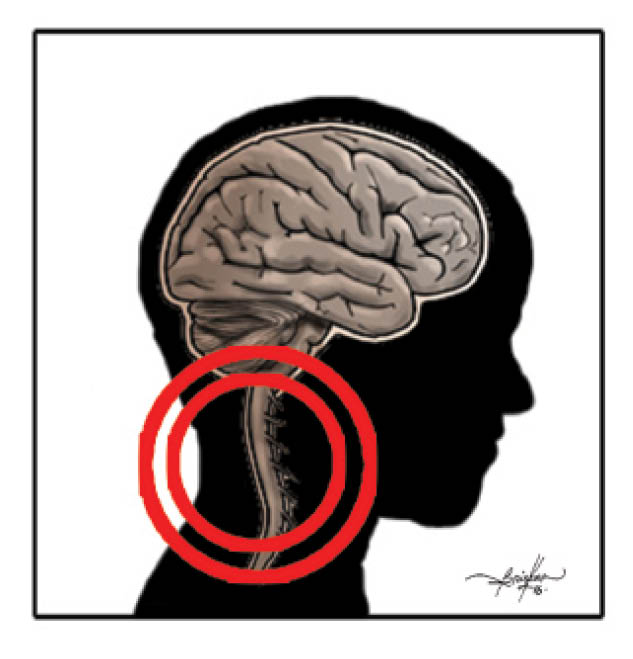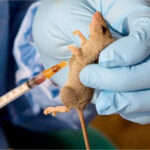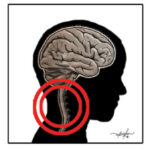Nigeria is one of the countries within the cerebro spinal meningitis belt.
Over the years the country has continued to record outbreaks of the disease especially in the northern states.
According to the Nigeria Centre for Disease Control and Prevention (NCDC), meningitis is an inflammation of the membrane that covers the brain and the spinal cord.
NCDC said meningitis remains a major global health threat and a leading cause of lifelong disabilities.
Diphtheria death toll rises to 38 as meningitis hits Jigawa
Nigeria’s capacity to respond to health emergencies growing- Buhari
“Our brains and spinal cords are covered by membranes called meninges; they help to protect these delicate organs from infection and even direct physical injury. The infection of the meninges by microorganisms such as bacteria or viruses results in the condition known as meningitis.Viral and bacterial infections are the most common cause but bacterial meningitis is much more serious due to its rapid onset and its significant risk of death,” it said.
Also , data from NCDC showed that in 1996, the disease killed 11,717 of the 109,580 recorded cases, with subsequent epidemics in 2003, 2008, and 2009.
“After mass vaccination campaigns using a conjugate vaccine targeted at sero-group A (MenAfriVac) began, following its introduction in 2010 across African countries, sequential outbreaks were observed in 2013 and 2014 in north western Nigeria, followed by what was possibly the largest global sero-group C epidemic ever reported with 14,518 suspected cases between December 13, 2016, and June 15, 2017,” NCDC said.
Recently there was an outbreak of the disease in Jigawa.
The Director General of the NCDC, Dr Ifedayo Adetifa said that the agency has also been notified of rising cases in the state with over 117 suspected and 12 confirmed cases within the first two weeks of this year.
He said the outbreak in Jigawa is a reminder that cross border surveillance work and emergency preparedness and response plans are never quite done.
“There is also an outbreak in the bordering Zinder State, Niger Republic. Pathogens don’t recognize borders and go wherever people go. Vaccination is key for prevention.
“We had a meningitis Emergency Operations Centre (EOC) meeting; reviewed the response, identified challenges and came up with solutions,” he added.
NCDC said the meningitis affects both adults and children, including babies and toddlers.
The organisation said the disease is very largely vaccine preventable, and advises people to get vaccinated to protect themselves and those around them.
While saying early recognition saves lives, it advised the public to seek immediate medical attention if they experience symptoms.
“Visit a healthcare facility immediately, if you notice any meningitis-associated signs and symptoms.
“The most common signs and symptoms are fever, headache, nausea and vomiting, photophobia (pain on looking at bright lights), neck stiffness, and altered conscious levels.
“In younger children it may be more difficult to observe these signs, and irritability, poor feeding, and inactivity are common. N. meningitidis can also cause meningococcal septicemia, presenting with fatigue, severe myalgia (muscle pain), vomiting, cold extremities, rapid breathing, low blood pressure, and a purpuric (dark purple non-blanching) rash,” NCDC said.
Transmission of the disease is through direct person-to-person contact, including droplets from the nose and throat of infected persons.
It is also facilitated by close and prolonged contact (such as sneezing and coughing), smoking, overcrowding, while certain climatic conditions like dry season, where winds, cold nights, and associated upper respiratory tract infections combine to damage the lining of the nasopharynx.
Long-term implications are common such as hearing loss, behavioral changes, and neurodevelopmental deficits. The case fatality rates vary from 10% to greater than 50% without treatment.
The NCDC emphasized that the mainstay of prevention is through vaccination, either with monovalent or conjugate vaccines.
It said reductions in household crowding and other poverty-reducing measures will reduce overall susceptibility and transmission.
Others include, “Smoking cessation measures will be effective at reducing transmission in adult populations. Reducing indoor air pollution, such as indoor cooking over open flames, will help prevent children contracting meningitis.”
For treatment, NCDC said good supportive management is key; with prompt treatment using appropriate antibiotics for bacterial infections given after microbiological samples have been taken.
“Ceftriaxone remains the drug of choice in settings where routine antimicrobial susceptibility testing is unavailable, though high dose benzylpenicillin may be used if susceptible. “Older and immunocompromised patients should have amoxicillin added to cover for listerial infection, and in those with allergy to penicillin and cephalosporins, chloramphenicol should be used. Adjuvant treatment with corticosteroids has been shown to reduce mortality among adults with infections caused by S. Pneumoniae,” NCDC said.

 Join Daily Trust WhatsApp Community For Quick Access To News and Happenings Around You.
Join Daily Trust WhatsApp Community For Quick Access To News and Happenings Around You.


